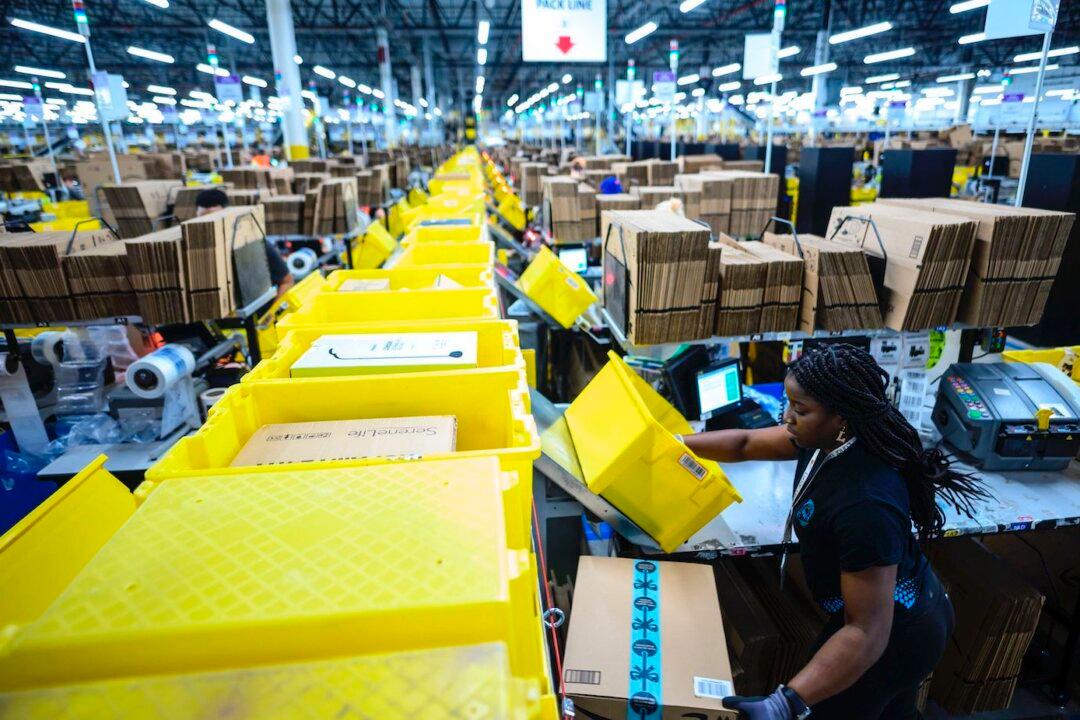California Gov. Gavin Newsom has signed a bill that restricts the ability of retailers such as Amazon to enforce production quotas on warehouse workers, a move hailed by labor advocacy groups but opposed by business organizations as needless and burdensome.
The measure, called AB 701, was approved by the state Assembly earlier in the month and signed into law by Newsom on Sept. 23. The law, which goes into effect on Jan. 1, 2022, bars mega-retailers such as Amazon from firing or retaliating against warehouse workers for missing quotas that interfere with bathroom and rest breaks.





